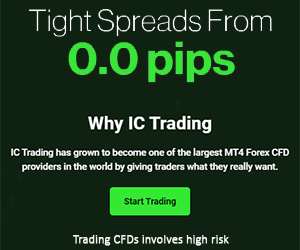Quick Guide into the Currency Market and How Foreign Exchange Rates Work
Currency exchange, also known as foreign exchange and forex, is the means of trading one currency for another. However, currency values are never stable and fluctuate throughout the day due to a whole host of factors, such as global developments, economic data and commodity prices. These everyday fluctuations make the currency market the most volatile platform in the world. With so much movement occurring, some opportunities to trade are more favourable than others.
Trading one currency for another involves a currency pair – with the exchange rate of that currency pair being how much of one currency you get in exchange for the other. A currency pair consists of a base currency (the currency you currently have) and a quote currency (the currency you want to trade your base currency for). So, for example, if you want to trade British Pounds for US Dollars, the exchange rate could be given to you as follows: GBP/USD – 1.4729. The amount given after the currency pair denotes how many US Dollars you’d get per one British Pound if you were to trade at that point in time.
Some of the most commonly traded currencies include the British Pound (GBP), US Dollar (USD), Euro (EUR), Canadian Dollar (CAD), Australian Dollar (AUD) and the New Zealand Dollar (NZD). It is worth noting that currencies can be manipulated, either intentionally or accidentally, by central banks. Most countries have a central bank which is responsible for monitoring things such as inflation, interest rates and exchange rates. The UK has the Bank of England (BoE), the US uses the Federal Reserve and the Eurozone has individual country central banks as well as the European Central Bank (ECB) which makes decisions for the entire currency bloc.
If a central bank decides a currency is too high, it can intervene in the foreign exchange market—an event that’s classed as a monetary policy tool. Central banks only usually take action in order to stabilise the currency as it can be risky business trying to decide on how much to intervene and get the timing right.
Meanwhile, regular banks on the high street offer foreign exchange services for people wishing to transfer money. When dealing in foreign exchange, banks make their money on what is known as 'the spread'. That means the difference between the amount the bank buys the currency for from the interbank and the price that they offer customers. However, using currency brokers such as TorFX can help customers get more for their money as they offer an exchange rate as close to the interbank rate as they can. In addition, brokers work on a commission and fee free basis, unlike banks, which tend to implement a range of charges. As brokers specialise in the currency market they’re also able to offer expert insight into the current economic conditions and how that could affect transactions.
Back to Forex Education Centre
Providing the latest Live Forex Rates and currency data for the UK.




